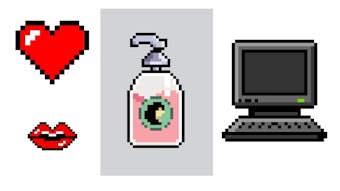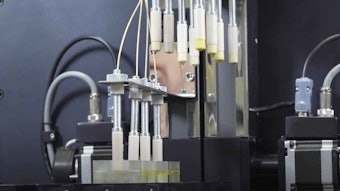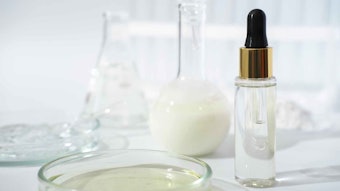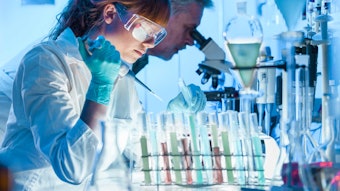In the past few years, preservatives have gotten a bad rap. A number of interest groups have raised alarm and consumers fear these materials to be carcinogenic and irritating. Whether or not these negative claims can be substantiated with sound science, the discussion surrounding them rages on, motivating some suppliers and formulators to work toward paraben-free or preservative-free alternatives.
A possible solution to the preservative-free cosmetic formulation conundrum may lie in the milk pasteurization process. Ultra-high-temperature (UHT) sterilization is the process of heating milk or cream to temperatures exceeding 275°F (135°C) for one or two seconds, then packaging it in a hermetically-sealed containers. This type of milk may be stored without refrigeration for 6–12 months, extending its lifespan and possibly reducing the carbon footprint of grocery stores by shrinking chiller capacity.
While UHT milk may be difficult to find in the grocery store, many consumers around the world are aware of it, especially in Europe where hot weather climates make it a necessity. Fewer individuals are aware of this novel technology’s application to cosmetics since it has only recently been explored.
Keeping the Bugs Out
Clean Lab Technologies (CL Tech) announced in early 2008 that it had created a UHT sterilization method to create personal care products without the use of preservatives. “Sterilization refers to any process that effectively kills or eliminates transmissible agents such as fungi, bacteria, viruses or spores from a surface, equipment, food or medication.
Sterilization can be achieved through application of heat, chemicals, irradiation, high pressure or filtration,” said Pierre Coureil, business development manager for CL Tech. According to the Coureil, the process of UHT sterilization is entirely natural, effective for all skin types, free of preservatives and free of allergens. Similar to the UHT production of milk, the UHT processing of cosmetics involves heating the product to a high temperature followed by an immediate cooling to ensure the elimination of all microorganisms.
Preserving Efficacy with UHT
Although some might question the effect of such a process, the company maintains that its process preserves both quality and efficacy. The company has produced Dermatherm, a line of products using its patented UHT sterilization process. To maintain the preservation of its sterilized personal care line, the company packages its products in an airless sterile tube. In addition, the process requires strict conditions of microbiological cleanliness in a sterile zone.
“The sterilization process requires specific processing equipment that can properly sterilize a variety of skin care products such as creams, lotions, gels and shampoos and destroy all bacteria, spores and germs,” commented Coureil. The UHT process, however, is proprietary to the company.
According to Coureil, ingredients in the formulations are not affected by this process. “Most active ingredients are not impacted when exposed to high temperatures,” said Coureil, who added that in some cases, formulas have to be optimized to withstand the sterilization process.
Certification with UHT
The company obtained BIO level certification for its line of skin care products from Cosmebio, a French association of natural cosmetic manufacturers. BIO level certification requires products to have a minimum of 95% natural ingredients. Coureil maintains that achieving this level is easier with the UHT process. Manufacturing products via UHTs allows companies to formulate without some frequently questioned ingredients including parabens, phenoxyethanol and other preservatives; fragrance; mineral oil; polyethylene glycol; lanolin; alcohol; silicone; and pigments.
A Solution for Sensitive Care
Beyond its benefit in formulating without preservatives, processing cosmetics using the UHT system might also benefit those with sensitive skin.
“Preservatives are potentially aggressive to fragile or sensitive skins since their primary mission is to prevent ‘life’ such as bacteria, spores and germs,” explained Coureil. For him, eliminating preservatives better serves the consumer. According to Coureil, eliminating preservatives reduces risks such as allergies, irritation, inflammation, skin redness and other reactions due to the use of chemical or natural preservatives while maintaining effectiveness.
Coureil does concede that the only true way to eliminate preservatives from cosmetics is to use an alternative preservation technology.
“For the time being, UHT sterilization is the only natural and well proven alternative to preservatives,” said Coreil, who believes other preservative-free cosmetics are formulated with ingredients that are not classified as preservatives but serve the same funcion. Adopting the UHT processing technology in the manufacturing of cosmetics could offer formulators several potential benefits, and CL Tech is willing to share its knowledge. The technology, however, is still in its infancy, allowing it a considerable amount of time to either go luke warm or scalding hot.










